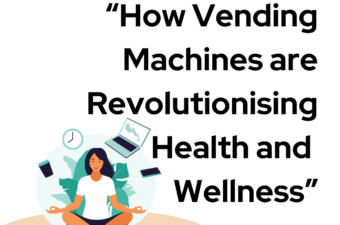
In many workplaces around the world, coffee is more than just a beverage—it’s a vital part of the office culture and a well-known productivity booster. Its role in enhancing concentration, boosting morale, and fostering social interactions among colleagues is well documented. Let’s delve into how coffee becomes a pivotal element in the workplace, not just for its flavour, but for its impact on productivity and employee satisfaction.
1. Enhanced Concentration and Alertness
Caffeine, the primary active ingredient in coffee, is renowned for its ability to enhance alertness and concentration. By blocking the neurotransmitter adenosine, caffeine increases the release of other neurotransmitters like dopamine and norepinephrine, which improve attention and alertness. This makes coffee a go-to for many employees looking to stay focused, especially during the mid-morning slump or post-lunch fatigue.
2. Increased Productivity
Studies have consistently shown that coffee consumption can lead to increased productivity in the workplace. The stimulating effects of caffeine can help employees complete tasks more quickly and with greater accuracy, especially for those engaging in prolonged or repetitive tasks. Furthermore, the act of taking short coffee breaks allows employees a moment to pause, recharge, and return to their workstations refreshed and ready to tackle their tasks.
3. Improved Morale and Well-being
Coffee in the workplace does more than just energise the body; it also boosts morale. The presence of a communal coffee machine can create a focal point for social interaction and informal communication. These interactions are crucial as they can lead to a more cohesive work environment and improve overall job satisfaction. Additionally, providing quality coffee shows employees that they are valued, which can enhance feelings of well-being and company loyalty.
4. Encouraging Creativity
The informal interactions that occur around the coffee machine can also be a hotbed for creativity. Conversations that take place away from the formal confines of meeting rooms or desks can spark new ideas, leading to innovative solutions and collaborative projects. This environment, stimulated by regular caffeine intake, fosters an energetic and creative atmosphere that can be crucial for driving a company’s innovative processes.
5. Health Benefits
Moderate coffee consumption has been linked to several health benefits, including a reduced risk of various diseases such as Parkinson’s disease, Alzheimer’s disease, type 2 diabetes, and certain forms of cancer. These health benefits can lead to lower absenteeism due to illness and a healthier, more engaged workforce.
6. Customisation and Variety
Today, office coffee services can offer a variety of options to cater to different tastes and preferences, from espresso machines that deliver barista-quality drinks to single-serve systems that ensure freshness and convenience. Having a range of choices available can cater to the diverse palate of an office crowd, ensuring that all staff members have access to a satisfying coffee experience.
In conclusion, coffee serves as more than just a beverage in the workplace. It is a powerful tool that enhances productivity, fosters social interaction, boosts morale, and promotes health. Investing in good quality coffee and a pleasant communal coffee area is not just good hospitality, it is a smart business strategy that pays dividends in terms of productivity and employee satisfaction. As such, coffee is indeed a crucial asset in fostering a vibrant and effective workplace.




